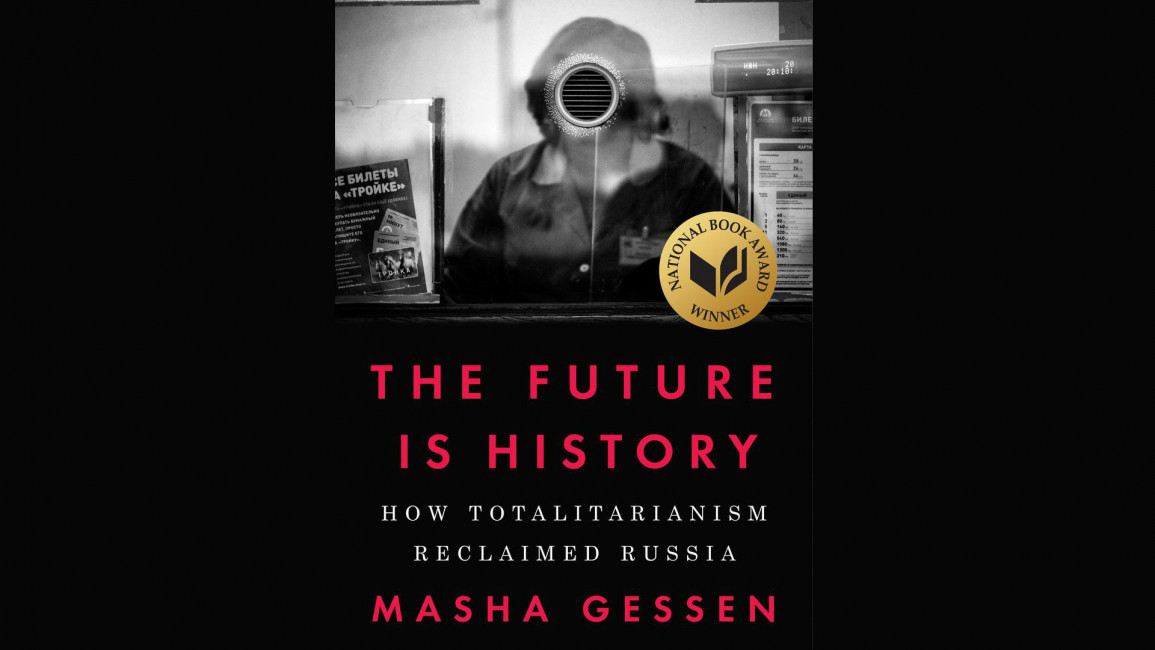
Homo Sovieticus' return to a totalitarian Russia
Those familiar with Gessen's previous work 'The Man Without a Face: The Unlikely Rise of Vladimir Putin' will recall the gangster-style politics that enabled Putin to reach the top.
The Future is History is an attempt to try to explain how Putin rose to the top through the personal stories of a generation of Russians, coming of age during the late Soviet and liberal Russian era.
Towards the end of the Soviet Union, things began to look more hopeful. Soviet sociologist, Yuri Levada, founder of Russia's first polling organisation in 1987, confidently predicted the demise of totalitarianism in Russia with the ascent of a new liberal-looking generation.
Homo Sovieticus
The older generation of Russians, classed as Homo Sovieticus, were characterised by their need for a paternalistic state, a belief in conformity, and a deep suspicion of individual initiatives or activities that they perceived as being threatening to social order.
 |
Authoritarianism didn't just happen overnight - it was a coming together of socio-historical forces that took on different forms in different sections of society |  |
A key characteristic of Homo Sovieticus was 'double-think' - or the ability to hold two contradictory and sometimes mutually-opposing ideas at the same time.
Twitter Post
|
This resulted in a fragmented consciousness; however, as Gessen points out, these ideas are like trains on separate tracks and so long as the tracks do not cross one another, the conflict between them is not necessarily felt.
The Homo Sovieticus could deploy two mutually opposing statements that appeared reasonable in the same sentence - two antinomies, one after another.
For Levada the ultimate example of these antinomies was what he termed 'the imperial syndrome'. In this way, every Soviet citizen was made to feel proud of the size of the USSR and the social unity under the Soviet system, while also being made constantly aware of their ethnic origins and otherness.
As the book demonstrates, Soviet totalitarianism operated by anatomising people in order to isolate them from other people.
Isolation made the Soviet citizen suspicious of other people and increased their need and dependency for a strong centralised state to protect their interests.
Thus, for the Homo Sovieticus, who came into being during the Russian Revolution and matured during Stalin's Great Terror, it was all a matter of survival.
However, as the experience of Stalinist rule was absent for the younger generation of Russians and increasing openness where Soviet crimes were being discussed on-top-of the liberalising agenda of Gorbachev, it appeared that Homo Sovieticus was a dying breed.
Levada's polling of the younger generation showed increasing acceptance for alternative lifestyles, LGBT rights and social freedoms. These findings made Levada declare that Homo Sovieticus would be no more and by implication authoritarianism in Russia would be too. The collapse of the Soviet Union seemed to only confirm this thesis, as young Russians embraced new freedoms to read previously banned works.
Although many Russians eagerly explored the new freedoms offered, there was a deeply felt sense of loss in status in the world and the old anxieties produced during the Soviet era never went away.
Instability
Lav Gudkov, a student of Levada, conducted polling in post-Soviet Russia and his results showed a heighted fear of instability and a lukewarm attitude towards social freedom. He concluded that not only had Homo Sovieticus survived - it had also reproduced itself.
The reasons for the reproduction varied and a key reason might be that undoing 74-years of Soviet social-engineering is a far slower process than Russia's liberal thinkers imagined. Added to this are the problems that Russia underwent throughout the 1990's while the Homo Sovieticus gene was simply waiting to kick in.
Twitter Post
|
For each of the stories we follow in 'The Future is History' different events sparked the Homo Sovieticus back into action.
For Masha, born in 1984 and a member of the post-Soviet generation, the spark came on 24 March 1999 after NATO began bombing Serbia in reaction to the Serbian military's actions in Kosovo. Russians identified with the Serbs as fellow Slavs and Orthodox Christians who were fighting Muslims, which the Russians connected to their fight against Chechens.
Masha was visiting the Lev Tolstoy (Leo Tolstoy) library on a school field trip; she had recently finished reading Tolstoy's novel Anna Karenina, which ended with Anna's love, Vronsky, leaving Russia to fight with the Serbs against the Ottoman Muslims.
For Masha, as for the other students of the trip, a sense of betrayal and anger emerged; bombing the Serbs was like bombing the Russians. Fear of America had been rekindled.
'The Future is History' reminds us of a few important points: Firstly, authoritarianism didn't just happen overnight but was rather a coming together of socio-historical forces that took on different forms in different sections of society.
Secondly, while the 1990s can be characterised as Russia's experiment with liberal and democratising forces, the search for an identity and a place-in-the-world gradually came to overtake these new forces.
Thirdly, double-think is a key psychological component which enables authoritarians to rule and is necessary for sustaining their rule.
Some of these traits can be observed in the Arab world and exploring the intersections between the Arab and Russian authoritarian orders should be the next step. Books like 'The Future is History' provide us with a richer understanding of how authoritarianism re-formulated itself in Russia, which I hope will make this process easier.
Usman Butt is a multimedia television researcher, filmmaker and writer based in London. Usman read International Relations and Arabic Language at the University of Westminster and completed a Master of Arts in Palestine Studies at the University of Exeter.
Follow him on Twitter: @TheUsmanButt
Opinions expressed in this article remain those of the author and do not necessarily represent those of The New Arab, its editorial board or staff.




